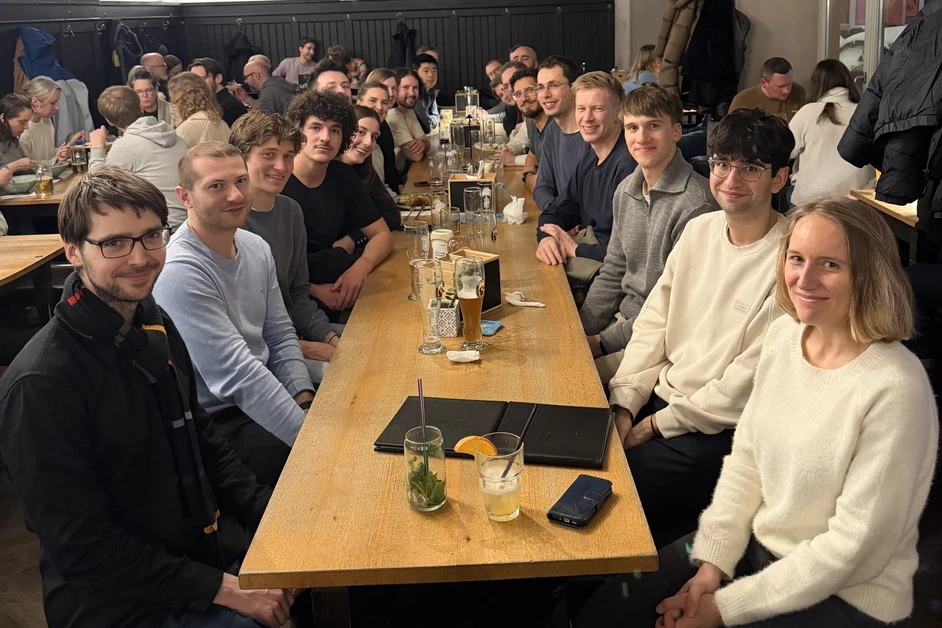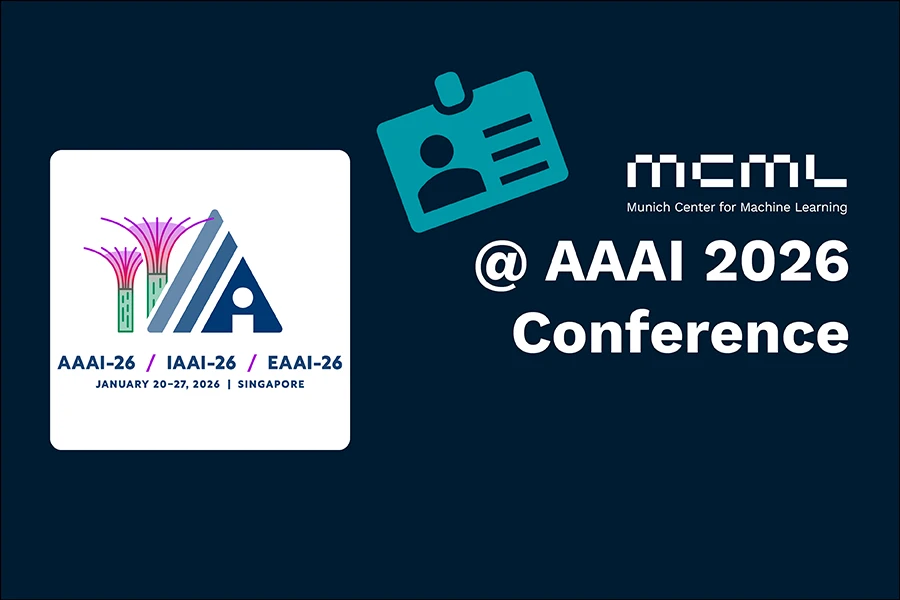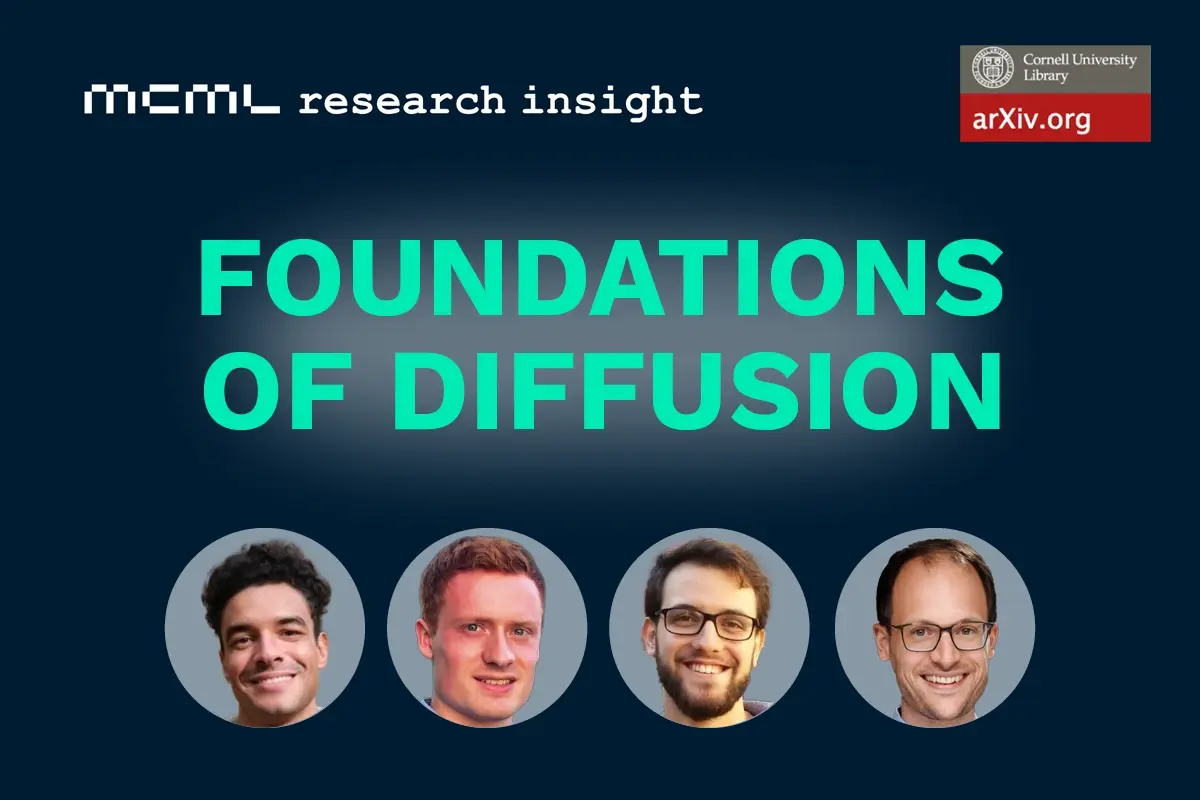
05.03.2026
Foundations of Diffusion: One Map for Images and Text
MCML Research Insight – With Vincent Pauline, Tobias Höppe, Andrea Dittadi, and Stefan Bauer
From hyper-realistic video generation to protein design, Diffusion Models are the engine behind the current wave of Generative AI. But if you try to understand how diffusion models actually work, you …

05.03.2026
Matthias Althoff Featured in VentureCapital Magazin
Autonomous Robotics for Infrastructure Repair
MCML PI Matthias Althoff was mentioned in VentureCapital Magazin in the context of the Munich robotics startup Sitegeist. Founded in 2025 as a spin-off of the Technical University of Munich, the …
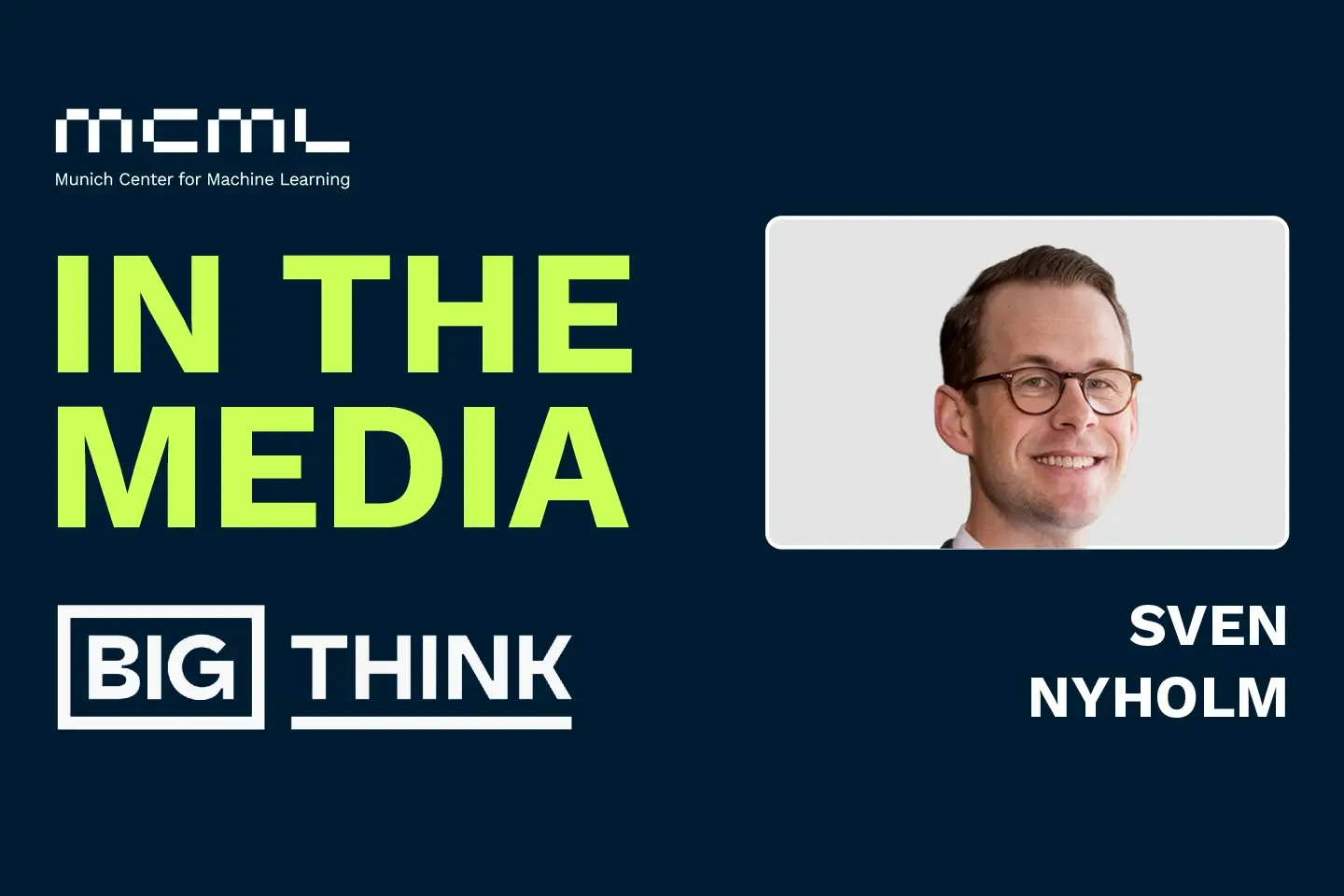
05.03.2026
Sven Nyholm Featured in Big Think
The Relationship Between AI, Effort, and Human Meaning
MCML PI Sven Nyholm was recently featured in Big Think. In the article “The hidden cost of letting AI make your life easier,” Nyholm reflects on how increasing reliance on AI might affect our sense of …

©Andreas Leder / LMU
24.02.2026
Cosmology: Measuring the Expansion of the Universe With Cosmic Fireworks
Daniel Gruen Leads LMU’s Observational Campaign on SN Winny to Help Resolve the Hubble Tension
That the Universe is expanding has been known for almost a hundred years now, but how fast? The exact rate of that expansion remains hotly debated, even challenging the standard model of cosmology. A …
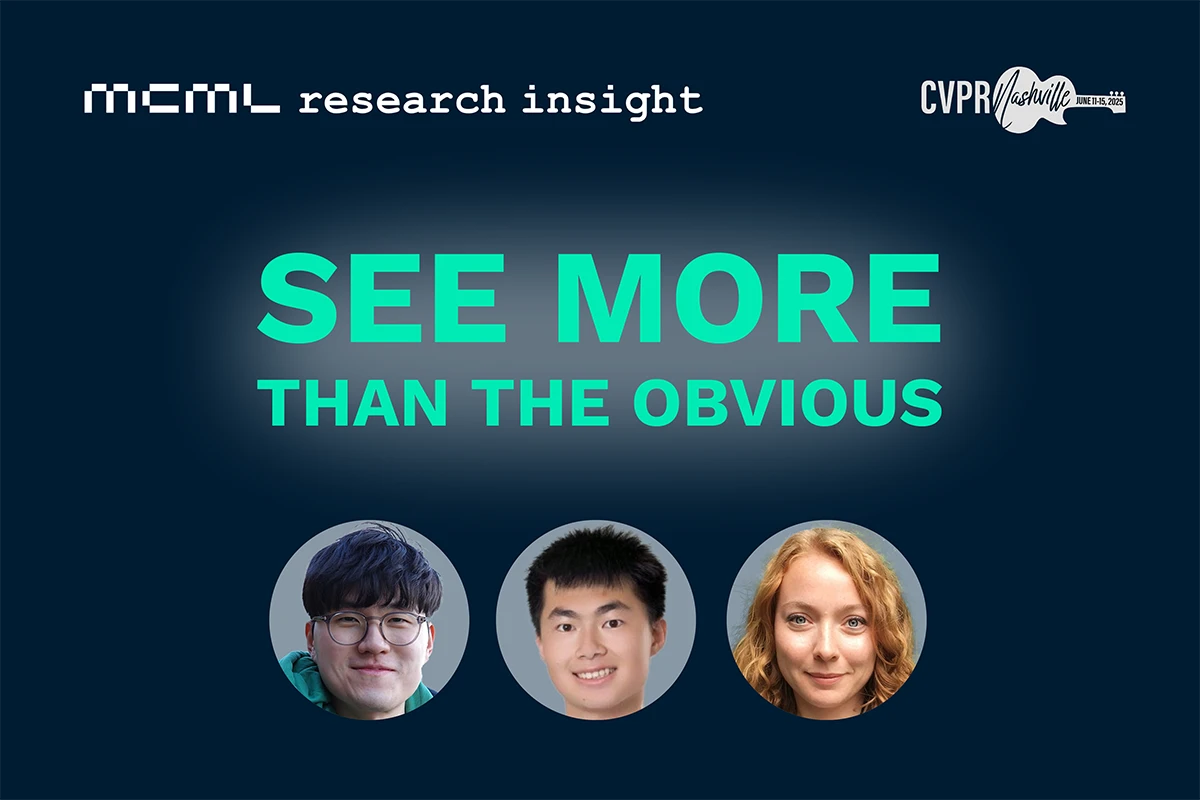
19.02.2026
COSMOS – Teaching Vision-Language Models to Look Beyond the Obvious
MCML Research Insight - With Sanghwan Kim, Rui Xiao, Mariana-Iuliana Georgescu, Stephan Alaniz, and Zeynep Akata
Today’s AI systems are remarkably good at recognizing what stands out most. Yet understanding how details relate to each other remains surprisingly difficult. Imagine asking an AI assistant to …
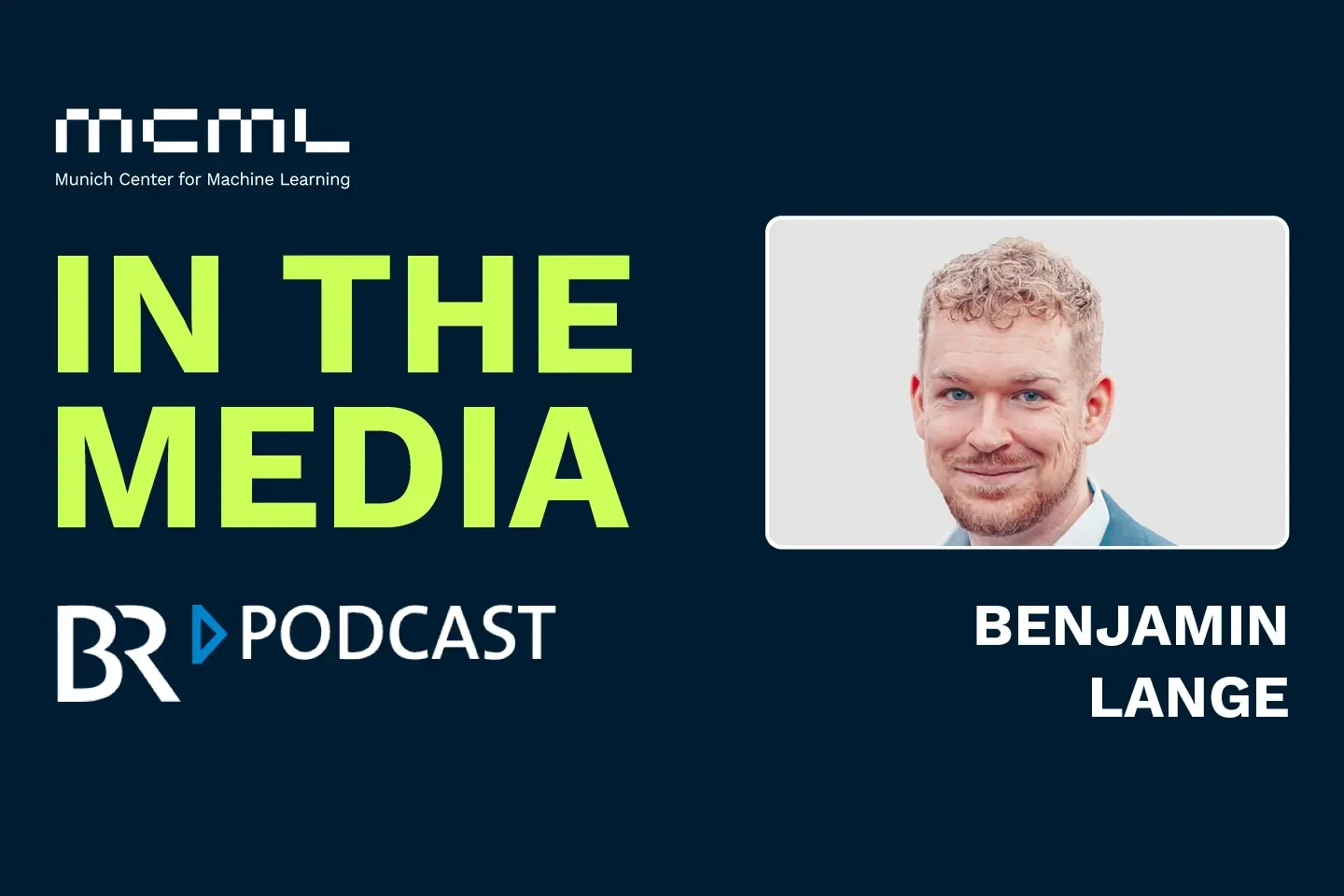
19.02.2026
Benjamin Lange Featured on Bayerischer Rundfunk Podcast
Can AI Lie? – How Manipulative Are Chatbots?
MCML Junior Research Group Leader Benjamin Lange was featured on the Bayerischer Rundfunk podcast IQ – Wissenschaft und Forschung in the episode “Kann KI lügen? – So manipulativ sind Chatbots.” In the …

13.02.2026
Digdeep Podcast: Will School Still Work When AI Becomes the New Classmate?
News From the Digital World by MCML PI Frauke Kreuter and Christof Horn
In this episode of #digdeep Jochen Kuhn and Florian Karsten explore how school will change when children grow up with AI and chatbots that can provide knowledge at any time and even take over tasks. …

05.02.2026
Daniel Rückert and Fabian Theis Awarded Google.org AI for Science Grant
Project Will Develop a Multiscale AI Model Connecting Cellular and Organ-Level Processes
MCML Director Daniel Rueckert and MCML PI Fabian Theis have received funding through the $20 million AI for Science fund by Google.org. Their project, based at Technische Universität München and …
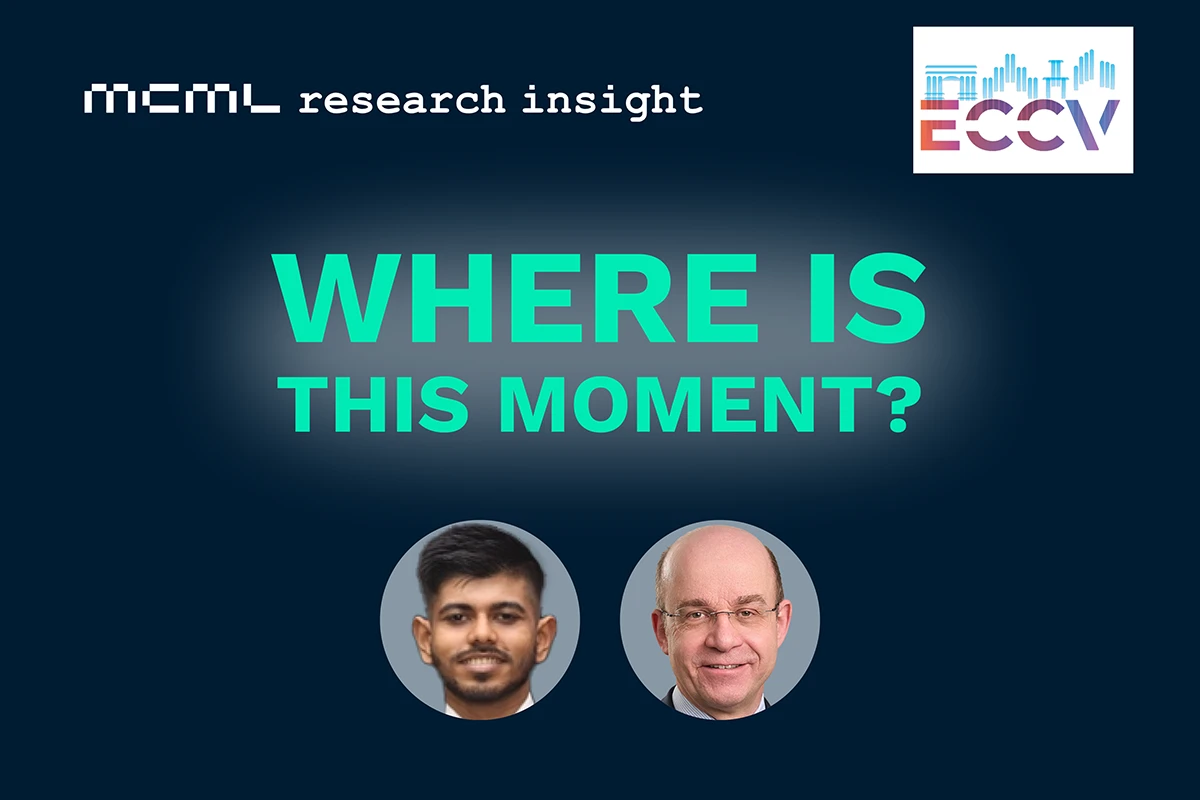
05.02.2026
Needle in a Haystack: Finding Exact Moments in Long Videos
MCML Research Insight - With With Tanveer Hannan and Thomas Seidl
Long videos are everywhere, with footage of movies, YouTube videos, body-cam recordings, and AR/VR often running for tens of minutes or even hours. Now imagine asking a simple question like “Where are …

04.02.2026
Benjamin Busam Leads Design of Bavarian Earth Observation Satellite Network “CuBy”
Bavarian Earth Observation Satellite Network Ready for Launch
MCML PI Benjamin Busam is leading the scientific design of the Bavarian Earth observation satellite network “CuBy”, which is scheduled for launch in June 2026. The system consists of five small …

©Florian Generotzky / LMU
30.01.2026
Cracks in the Foundations of Cosmology
Daniel Grün Explains How Observations Test Our Understanding of the Universe
There was a time when the Andromeda Nebula was the end of the Universe. At least, a number of astronomers in the early 20th century still thought that fuzzy objects in the night sky – such as the …

29.01.2026
Digdeep Podcast: Anna Kopp, How Does Microsoft Bring People and AI Together?
News From the Digital World by MCML PI Frauke Kreuter and Christof Horn
In this episode of #digdeep the team speaks with Anna Kopp, Director of Microsoft Digital Germany, about the meaningful integration of AI, agents, and human work. She describes how work at Microsoft …
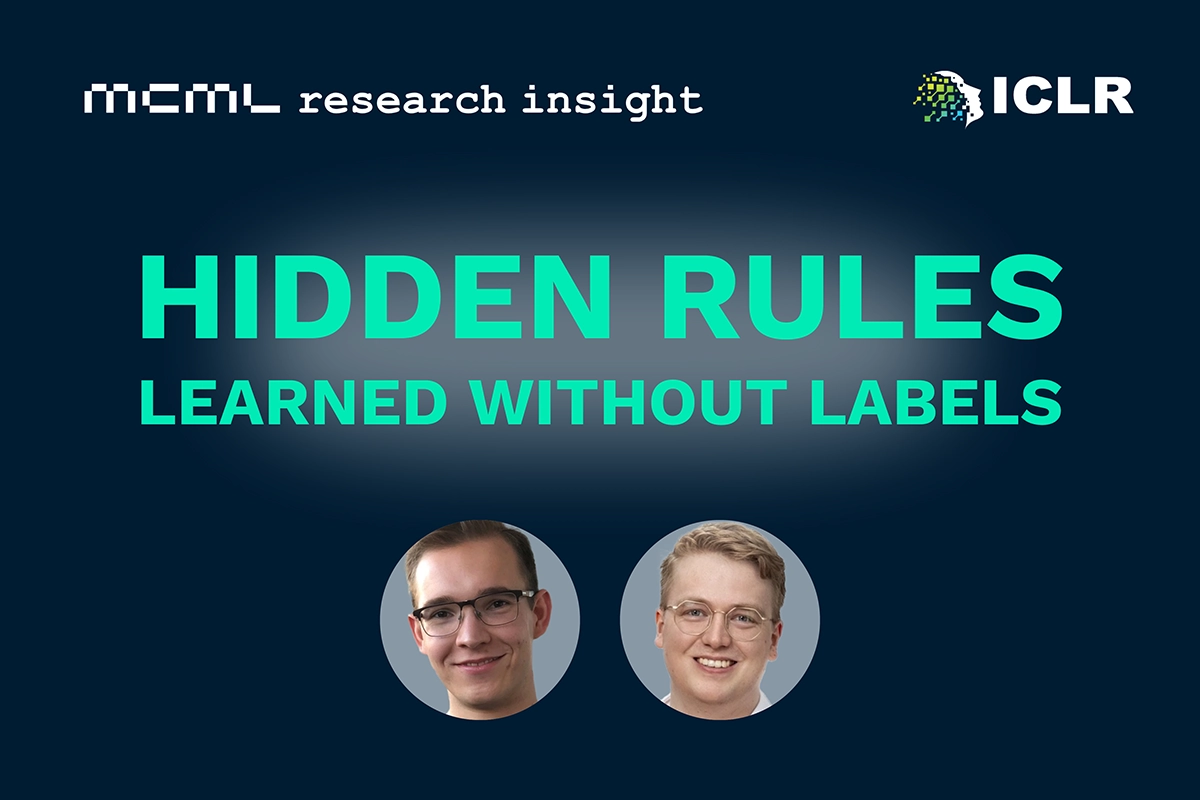
29.01.2026
How Machines Can Discover Hidden Rules Without Supervision
MCML Research Insight - With Tobias Schmidt, and Steffen Schneider
How can machines learn the hidden rules that govern how systems change—how objects move, how weather patterns unfold, or how biological signals evolve—without ever being told what those rules are?
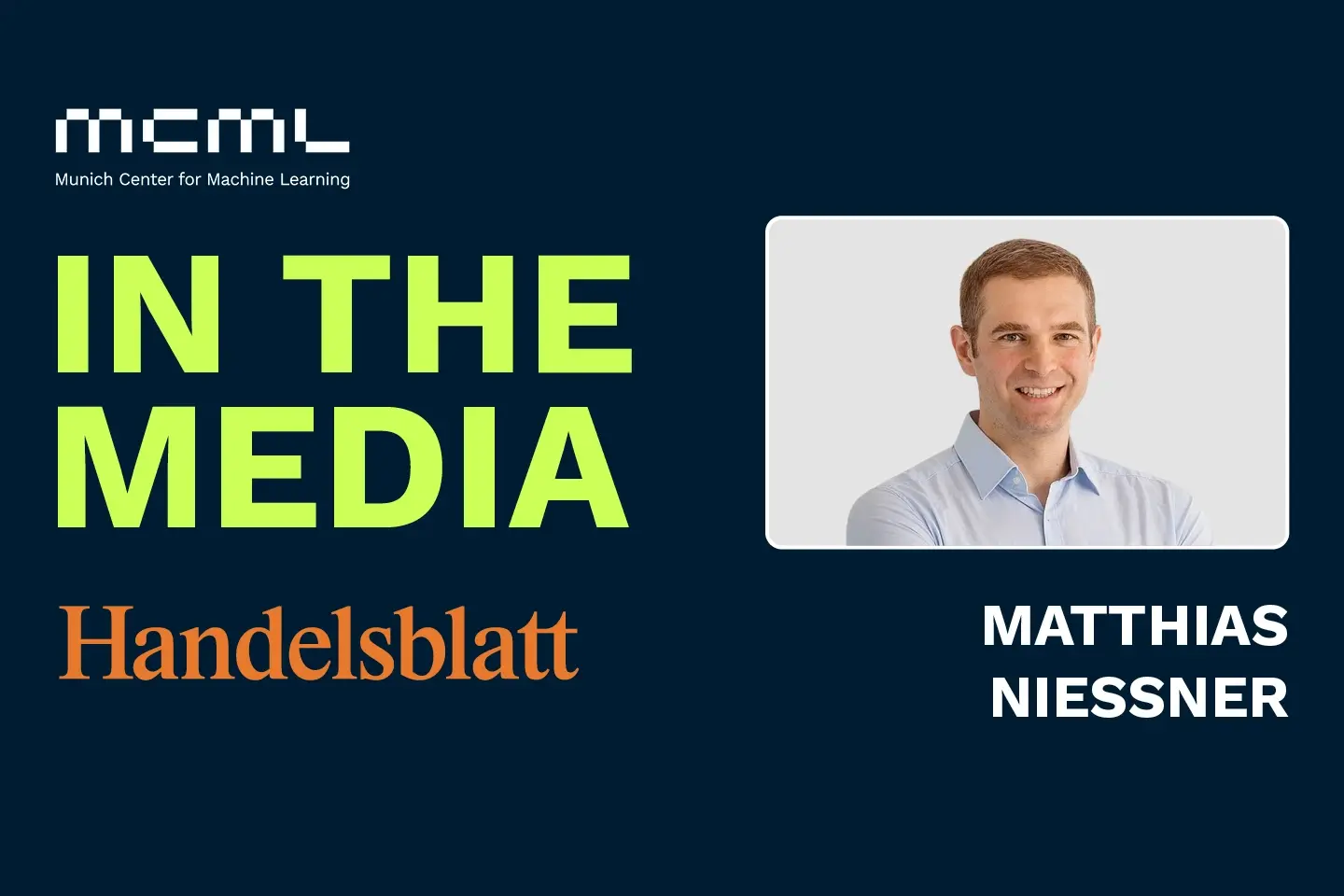
28.01.2026
Matthias Nießner Co-Founds AI Startup Synthesia
Interactive AI Avatars Reshape Corporate Training
The London-based AI company Synthesia, co-founded by MCML PI Matthias Nießner, has raised an additional $200 million, bringing its valuation to $4 billion. Synthesia is one of Europe’s most valuable …
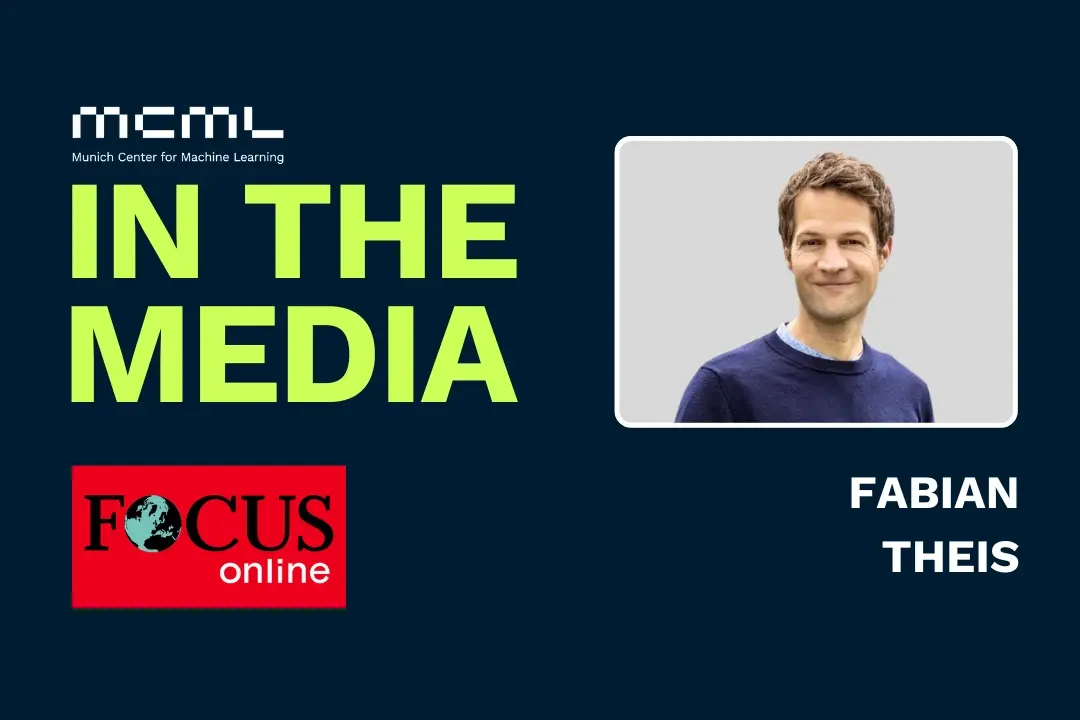
28.01.2026
Fabian Theis Featured in FOCUS Online at DLD 2026
How AI Can Support Doctors and Improve Access to Healthcare
MCML PI Fabian Theis was featured in an interview with FOCUS online at DLD Munich 2026, discussing how artificial intelligence can transform medicine. Fabian highlighted how AI can help make diagnosis …
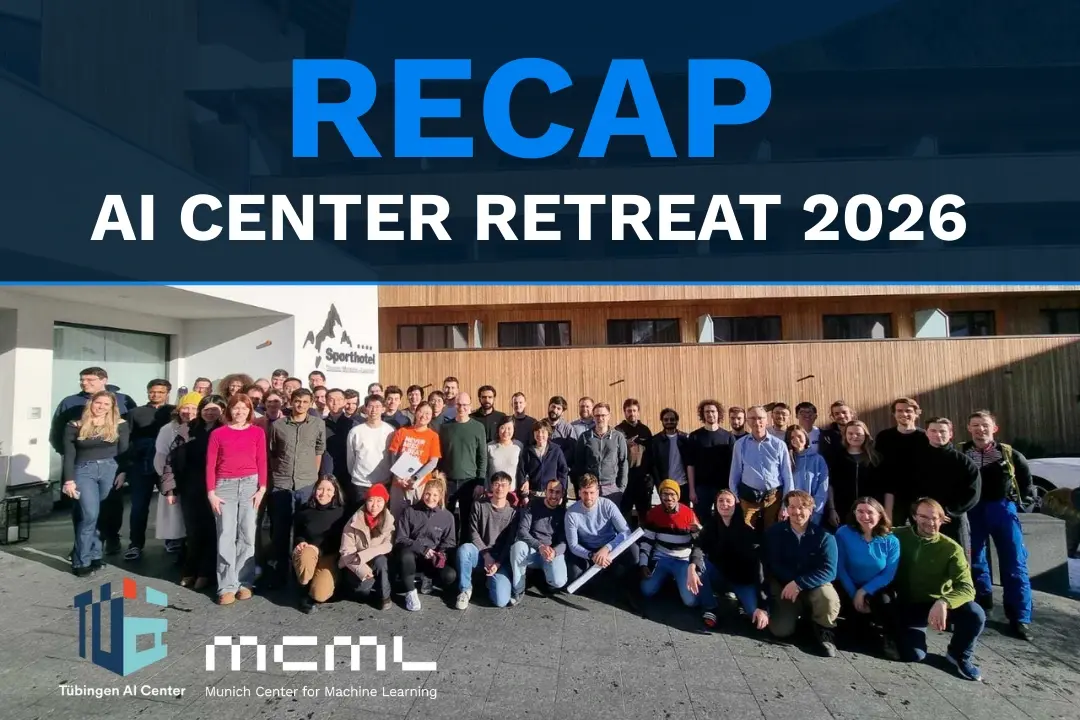
27.01.2026
Joint Retreat of MCML and TUEAI Center on the Latest Advances in Computer Vision
Short Recap
In January 2026, two research groups of the MCML and Tübingen AI Center met for a four-day retreat in Gaschurn/ Austria. About 60 researchers joined for talks and poster sessions. The joint retreat …
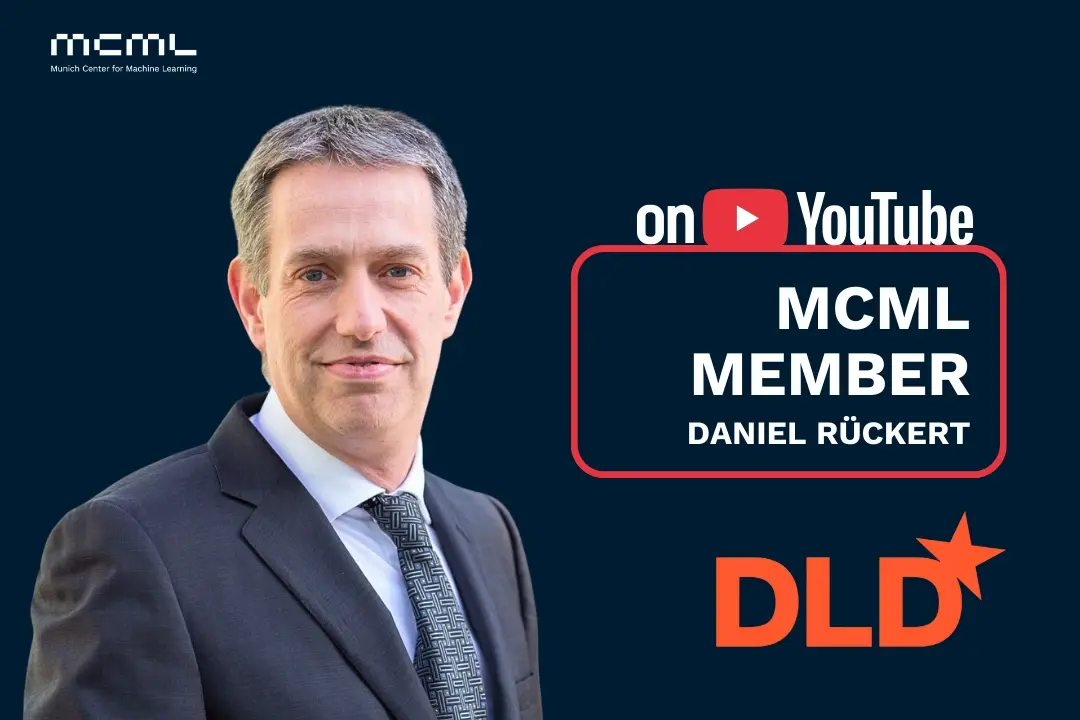
27.01.2026
Daniel Rückert Speaks at DLD Munich 2026
AI and the Future of Medicine: From Sci-Fi to Your Doctor's Office
Our Director Daniel Rückert spoke at the DLD Conference 2026 as part of the BIOSPHERE Health Track. In his talk, Daniel explored how AI is moving from science fiction into real clinical practice and …

27.01.2026
Fabian Theis Speaks at DLD Munich 2026
From Models to Medicines: AI-Guided Experimental Biology
We are pleased to share that our PI Fabian Theis contributed to DLD Conference 2026 as part of the BIOSPHERE Health Track. Fabian gave a talk titled “From Models to Medicines: AI-guided Experimental …

27.01.2026
Björn Ommer Speaks at DLD Munich 2026
It’s Gonna Be Wild: When AI Moves Faster Than Society
Our PI Björn Ommer was a featured speaker at DLD Munich 2026 in the session “It’s Gonna Be Wild: When AI Moves Faster Than Society”, together with LMU VP Armin Nassehi. The discussion reflects on the …
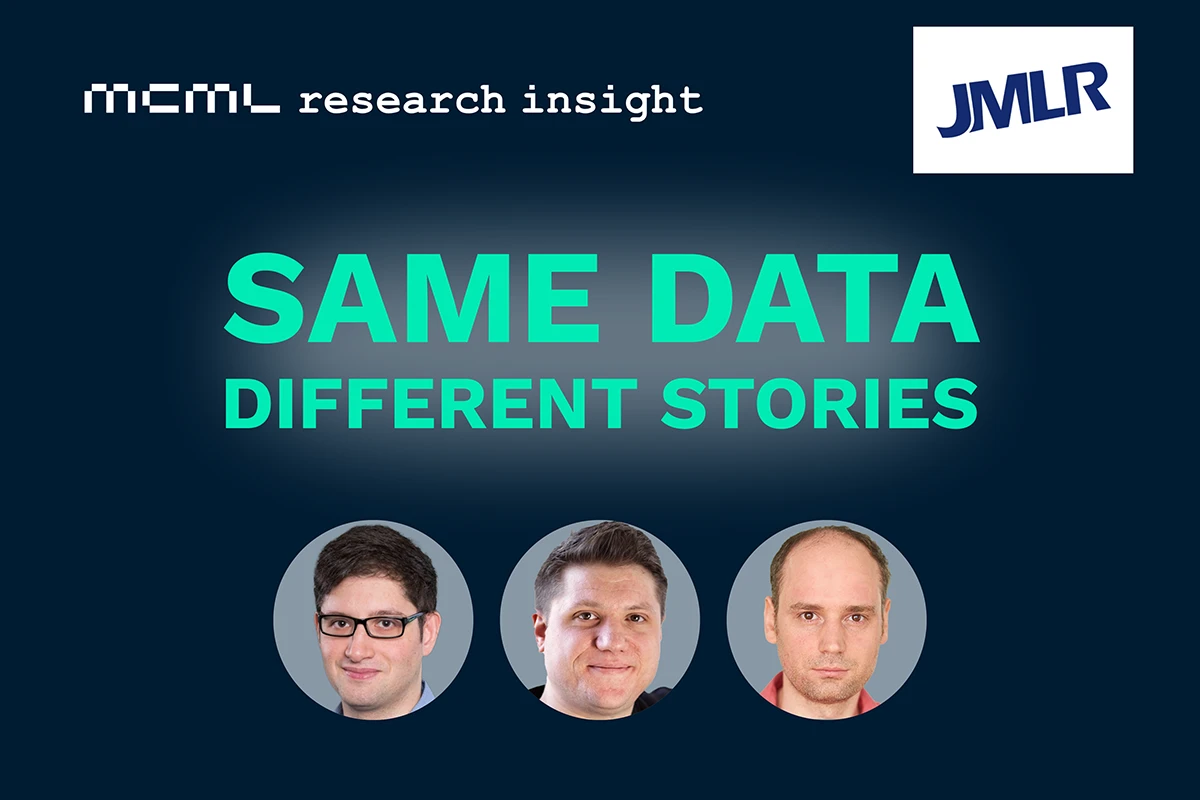
22.01.2026
From Global to Regional Explanations: Understanding Models More Locally
MCML Research Insight - With Giuseppe Casalicchio, Thomas Nagler, and Bernd Bischl
Machine learning models can be powerful, but understanding why they behave the way they do is often much harder. Early global interpretability tools were designed to show how each feature affects the …

22.01.2026
Research Stay at University of St. Gallen
Andrea Maldonado – Funded by the MCML AI X-Change Program
Between Freudenberg – “happiness mountain” – and Rosenberg – “roses mountain”, I had the pleasure to visit the Institute of Computer Science (ICS-HSG) at the University of St. Gallen (HSG) in …

20.01.2026
MCML PI Matthias Nießner Featured in WirtschaftsWoche on Spaitial AI
German Startup Develops AI for Instant 3D Room Creation
MCML PI Matthias Nießner was featured in WirtschaftsWoche for his startup Spaitial AI, which develops AI capable of creating realistic 3D models of real-world rooms and interiors within seconds. The …
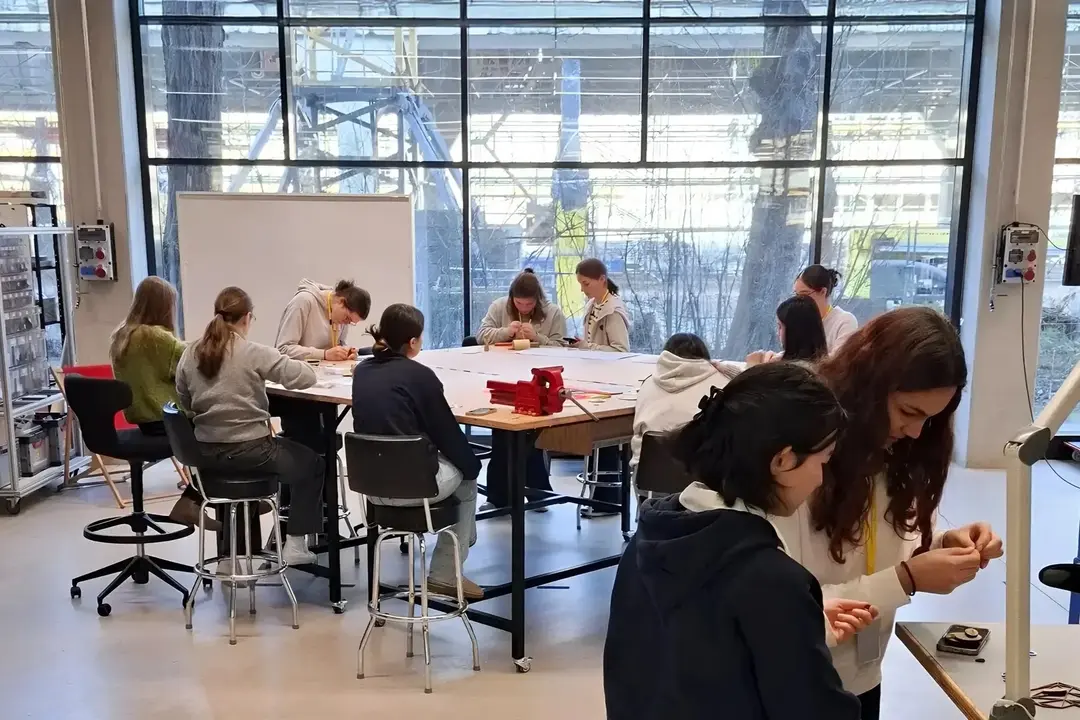
20.01.2026
MCML Supporting Girls in STEM
Encouraging Girls to Explore Science, Technology, and University Life
At the first GirlsLAB at TUM, female students from Bavarian partner schools explored STEM subjects through hands-on teamwork and creative problem-solving. While the students built chain-reaction …
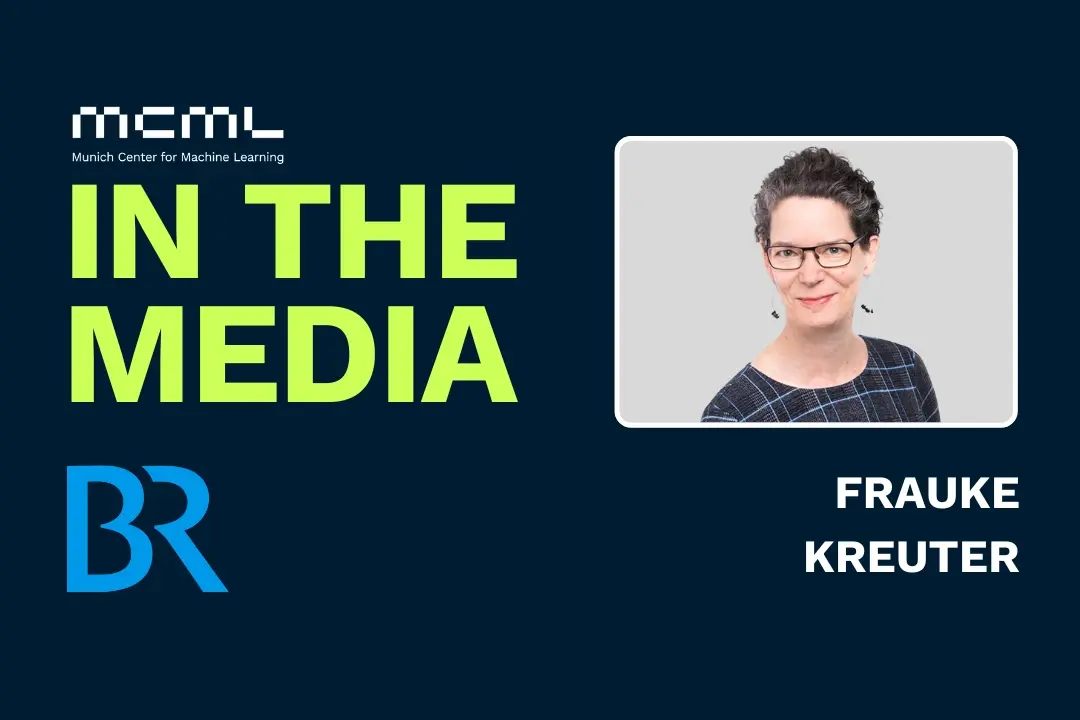
19.01.2026
MCML PI Frauke Kreuter Featured on ARD Alpha on AI
Exploring Opportunities and Risks of Artificial Intelligence
MCML PI Frauke Kreuter was featured on ARD alpha, discussing how AI is shaping everyday life and the workplace. Alongside moderator Birgit Kappel and Sabine Pfeiffer, head of the Chair of Sociology at …

15.01.2026
Digdeep Podcast: Live From the CES in Las Vegas
News From the Digital World by MCML PI Frauke Kreuter and Christof Horn
In this episode of #digdeep, Christof Horn reports live from the CES, the world’s largest consumer electronics trade show in Las Vegas and now also one of the leading trade shows for the global …
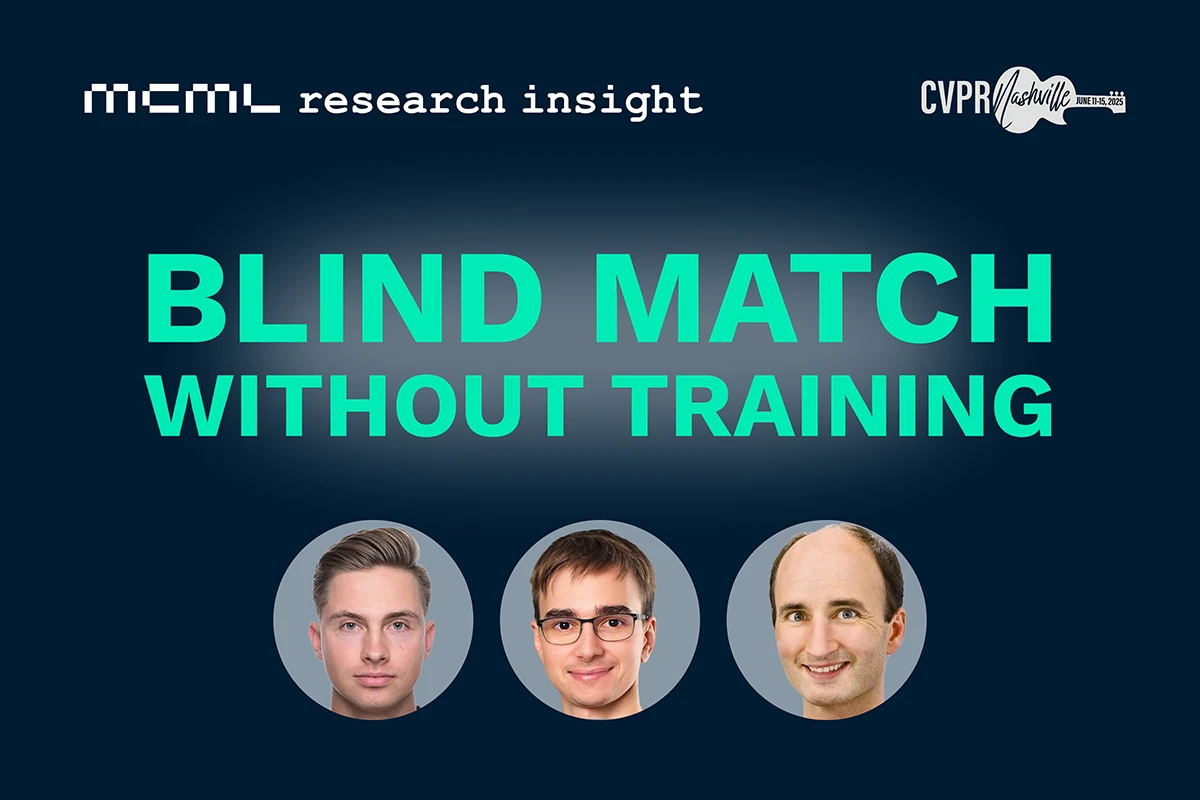
15.01.2026
Blind Matching – Aligning Images and Text Without Training or Labels
MCML Research Insight - With Dominik Schnaus, Nikita Araslanov, and Daniel Cremers
Vision-language models have shown that images and text can live in a shared space: a picture of a “cat” often lands close to the word “cat” in the embedding space. But such …
2020-10-13 - Last modified: 2026-03-05

